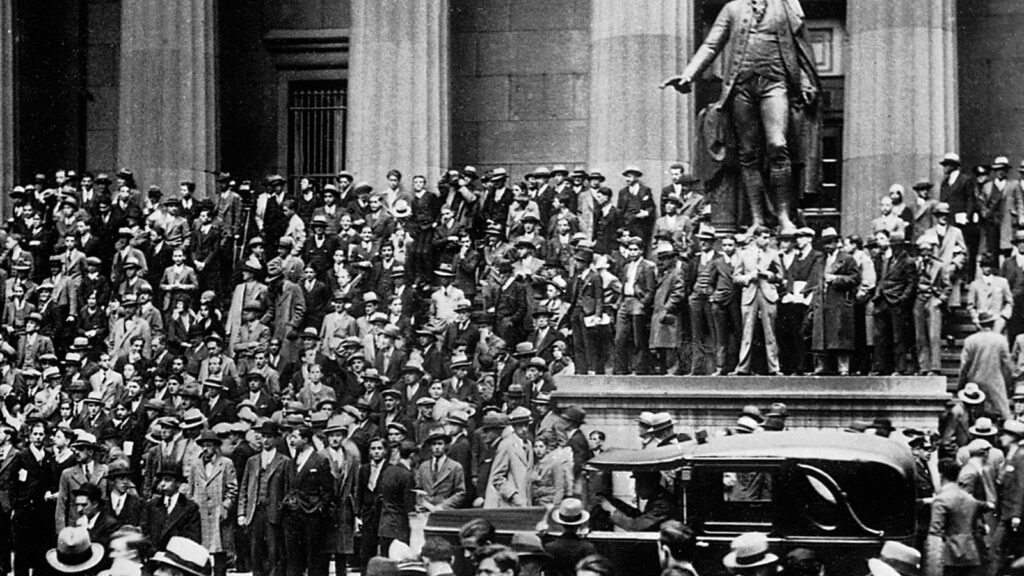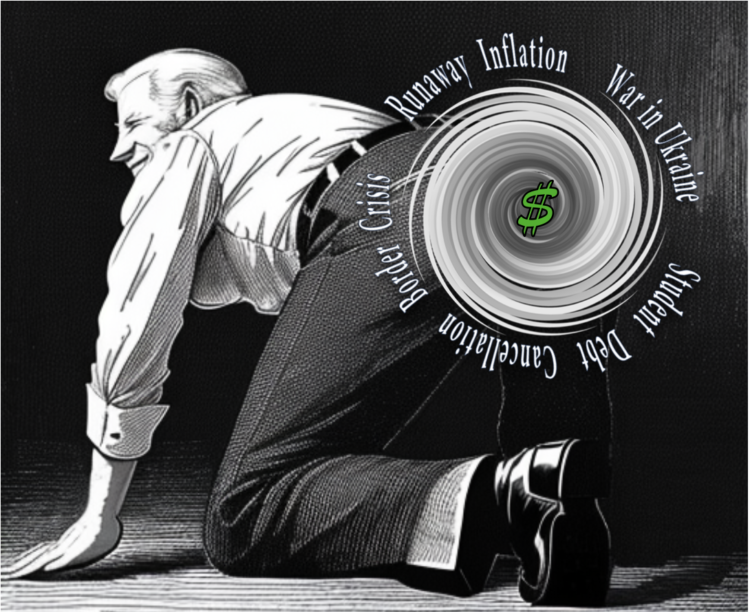Liberals are fed up. For the first time in thirty years, I agree with them.


“I say let the world go to hell, but I should always have my tea,” Dostoyevsky muses in Notes from Underground. Like the Master of St. Petersburg himself, I’ve spent the last thirty years or so biding my time and holding my tongue, for fear that should I raise my voice, it might be silenced by the great invisible hand of the body politick. But as Dylan says in My Back Pages, I was so much younger then, I’m older than that now…
The world is changing, I can feel it. The servers can barely remember my orders at Queequeg’s on Nantucket. It takes at least half an hour for a cocktail during Christmases at Tre Lune in Montecito. I wish I could say that this quandary was relegated to my empirical dissection, but the problem is rampant everywhere. This generation is anxious, and I don’t blame them.

The once mighty American empire has receded in dominance and power, standing like a devil at the crossroads, debating the worth of its soul measured against the prodigious expression of the blues. It’s up to us, and a generation of younger American “progressives,” to move forth past this intersection, and no, children, I don’t talk of “intersectionality.” When Clinton spake of the dawning of a new century led by global democracies taking the mantle from American hegemony, he must not have imagined the bellicosity of developing nations, the military circuitousness of armed guerrillas, the erotic aggravations of a generation lost not in space, but rather in space- time. All I can say to Gen-Z, Gen-A, and what will likely be ridiculed on the right as “Gen-Beta-Cuck,” is that the corpuscles of international policy won’t hinge on your hot girl summer. The valuation of American currency as it stands to next to the Federal Reserve’s willingness to engage in randy bouts of quantitative easing will not be subject to your interpretations of Barbie. Strength and faith in the American nuclear family, even as it recedes into the mystic chords of memory, matters very little to your “wet ass pussy.”

Let’s get something clear. I didn’t leave the Democrat Party. The Democrat Party left me. I was a good little classical liberal like we all were at Exeter. I canvassed for Kennedy, jousted for Johnson, hum-dinged for Humphrey, MacGyvered for McGovern, cartwheeled for Carter, tilted for Ted, and modeled for Mondale.
Dukakis was my breaking point. By ’88 the party I had fought for my entire life had become unrecognizable. This cadre of kind-hearted cordials had descended into a posse of poseurs, an assembly of assuages. Gone were the calls for bipartisanship, the merry protestations of sympathy for belief in the American cause. My beloved party had gone glass-eyed; to quote Lear, “scurvy politicians.” I was faced with the most precipitous moment of my life, more important than my first marriage, the birth of my first son, my second marriage, spending hundreds of thousands to get my son through high school, my third marriage and re-marriage to my second wife, and almost as important as the east wing of the Yale Library I commissioned to ensure my son’s acceptance. Should I follow my former fellow freedom fighters into the depths of despair, debating political correctness as we sink further into debt, discussing the “patriarchy” as we lose our patriotism, and intimating mass-immigration to the fore of the American psyche as shadow forces work to ensure the stream-lining of thought on the then-nascent internet? I shan’t resist another pluck of fruit from the Lear branch of the Bard tree, “Should Gods stand up for bastards?”
Rather than make a fool of myself, I receded from public discourse. I cut down my hour-long segment on Bloomberg Television to three nights from five, wrote only two books a year, and scheduled only a smattering of lectures, resisting the urge to expand the imparting of my wisdom to state schools. I spoke up following the September 11th Attacks, naturally calling for the invasions of Iraq, Afghanistan, Kuwait, Pakistan, Syria, India, Turkey, Laos, Malaysia, and Macedon. I now see that I was wrong, I can admit that. I too was sucked under the charm spell of George W. Bush and his fellow team of nubile necromancers, seducing me on CSPAN, alluring me on CNN, deflowering me with talks of mass-destruction.
But things have changed. Though I was wrong in 2003 about massive military intervention in a part of the world I’ve never been to, this time I’m right on the money, and bipartisan calls for more guns and bombs in that part of the world is something I can get behind. I’m not convinced on Ukraine. I guess the simplest way to put it is that it’s a complicated issue, and that there’s more than ample evidence to suggest that Ukraine itself acted as a puppet state of the West, and a backdoor for cabalistic business dealings and capital enterprises in a region the United States has no business intervening in. Israel is clear as day to me though, we should be in the weeds over there.

And so here we are again at the crossroads. Like the ways in which both parties have functionally come together to assist our allies, there are other glimmers of hope in this dark moment. When the United Auto Workers stood in solidarity against the Orwellian thought-control of green energy, they spoke with one voice, preaching allegiance to the free market over government intervention. When even labor unions are making sense, you know you have to take notice. Everywhere it seems, the fever is breaking. Hollywood is diminishing in cultural value, in large part due to its “woke” agenda, and several platforms are there to take its place. Perhaps it’ll be a few months before the youngsters switch over to Rumble from Tik Tok, perhaps a few days.
This is all to say that there’s hope. We have the tools, infrastructure, institutions, and market potential for another renaissance in American thought, but it’s up to the youth to finally focus on what’s important. So I say to Gen Z, “will you listen for once instead of ranting? Why are you so angry all the time?” If you can’t answer that question, I have no interest in further discussing in a bad-faith argument. It gets me emotional. Yes, Gen Z, men of our generations have thoughts and feelings too. We just don’t feel the need to constantly share them.

This article is part of the series What Binks Thinks Stinks, made possible by the Sachler and Cheney Foundation for International Discourse.
In Competence We Trust is committed to publishing a diversity of letters to the editor. We’d like to hear what you think about this or any of our articles. Here are some tips. And here’s our email: letters@incompetencewetrust.com.
Garth Binks is a contributing reporter and author of the book, “Broke Mob: A Crash Course on Economics for SJW’s” @whatbinksthinks










